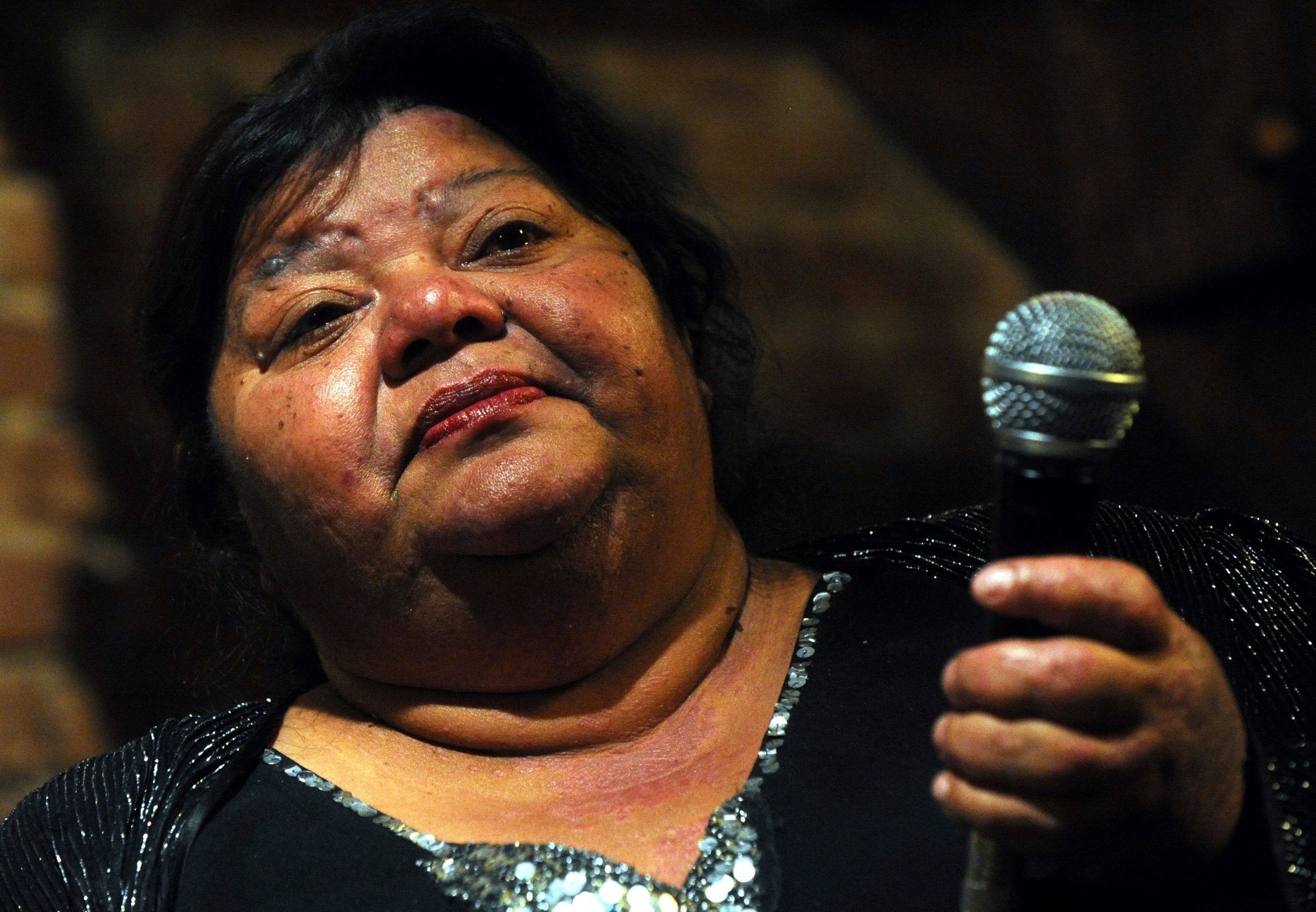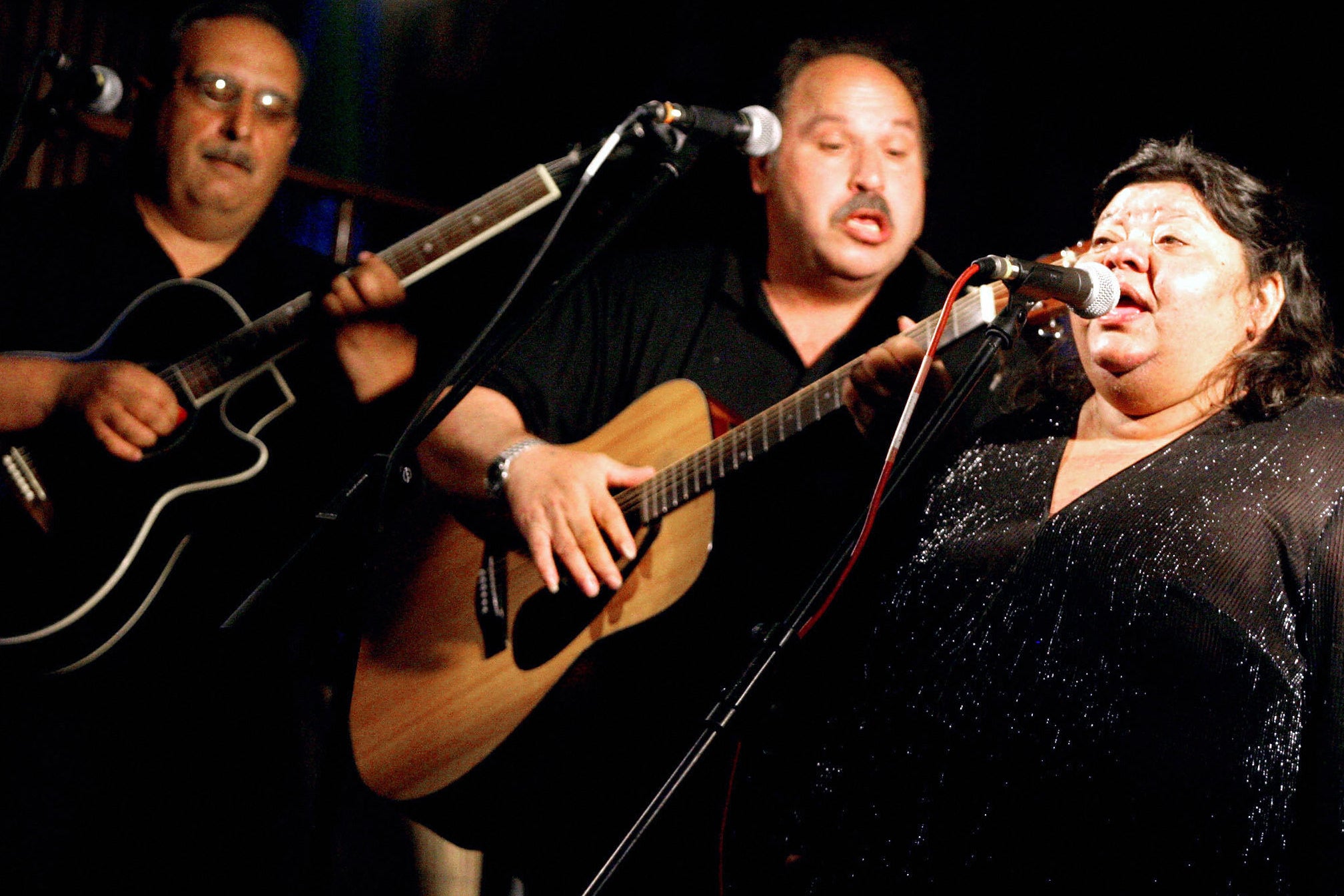Vera Bila: Czech singer known as the ‘Ella Fitzgerald of Romani music’
The musician’s immense charm and powerful voice set her on the road to being a global star before falling back into poverty

Your support helps us to tell the story
From reproductive rights to climate change to Big Tech, The Independent is on the ground when the story is developing. Whether it's investigating the financials of Elon Musk's pro-Trump PAC or producing our latest documentary, 'The A Word', which shines a light on the American women fighting for reproductive rights, we know how important it is to parse out the facts from the messaging.
At such a critical moment in US history, we need reporters on the ground. Your donation allows us to keep sending journalists to speak to both sides of the story.
The Independent is trusted by Americans across the entire political spectrum. And unlike many other quality news outlets, we choose not to lock Americans out of our reporting and analysis with paywalls. We believe quality journalism should be available to everyone, paid for by those who can afford it.
Your support makes all the difference.Vera Bila was dubbed the Ella Fitzgerald of Romani music. The Czech singer enjoyed international success in the late Nineties when she was signed to the German record label BMG and was the subject of a documentary.
Playing everywhere from the Hollywood Bowl to London’s Barbican Centre, Bila, who has died aged 64, appeared on the cusp of world music stardom, but vanished back into the impoverished Roma community she had risen from.
Bila grew up in the town of Rokycany, Czech Republic, where her father Karol Gina played violin in local bands at weddings and festivities. Bila’s family were poor, but her father recognised his daughter’s talent for singing and welcomed her into his band as vocalist when she was 12.
The warm response from Roma audiences was immediate and, by her late teens, Bila – whose surname translates in Slavic as “white” – and her band Kale (“Blacks”) were performing across Czechoslovakia, from folk festivals and tavernas to chic Prague bars.
It was at the latter that Ivan Krall, the Czech former bassist in Patti Smith’s band (having relocated to Prague), discovered Bila in the mid-1990s. He signed Bila to BMG and oversaw her debut album Rom Pop.
Rom Pop, however, was somewhat overproduced and achieved little commercially or critically, but it brought Bila to the attention of Jiri Smetana, a Czech who lived in Paris and worked in the French music industry.
Smetana deftly guided Bila onto the world music circuit and ensured her second album Kale Kalore (“Last Call”) was a stronger offering.
Employing funds BMG had given the band to make two videos, Smetana then commissioned Mira Erdevicki to make a documentary – the result, 1999’s Black And White In Colour, follows Bila from her humble village where her husband and son are unemployed (and anti-Romani prejudice is prevalent), to a performance in a prestigious Paris theatre.
This engaging, moving and occasionally hilarious documentary is a remarkable portrait of an artist, not least because Bila – who was short and merry – proved a natural in front of the camera.
Black and White In Colour helped win Bila international stature and in 2000 she would be the headline performer at the Barbican’s celebration of Romani music.

Tracks from her first two albums were compiled for Bila’s Queen of Romany album, and was released internationally. Many listeners were surprised to find, upon first listen, that Bila’s music, while sung in Slovak and Romani, drew heavily upon The Gipsy Kings’ rumba flamenco sound. When asked why this was, Bila stated that everyone liked The Gipsy Kings’ music so she and her band had learnt to play as such.
Bila’s 2001 album Rovava was her best effort yet as Bila sang more of the folk songs she had learnt as a child. A 2002 UK tour demonstrated what a captivating performer she could be. Interviewed by the UK’s fRoots magazine in London, Bila said: “I always dreamed of to travel and sing in the great cities. Yes, I dreamed but at the same time I knew I was a good singer and could sing in those cities.”
It seemed that a brilliant career lay ahead but, not long after, Bila would largely withdraw from performing. Mourning the deaths of both her husband and adopted son, she struggled with an addiction to slot machines and poor health. Having long spent the money she had made during her heyday, Bila was found living in a lodging house in the Czech city of Pilsen by Czech director David Vondracek. His 2018 documentary, The Last Hope of Vera Bila, found her impoverished but determined to once again tour. “I don’t care about my health,” Bila had told fRoots in 2002. “I’ve had a lot of sickness. What matters is singing. I imagine I’ll die on stage.”
Vera Bila, singer, born 22 May 1954, died 12 March 2019
Join our commenting forum
Join thought-provoking conversations, follow other Independent readers and see their replies
Comments